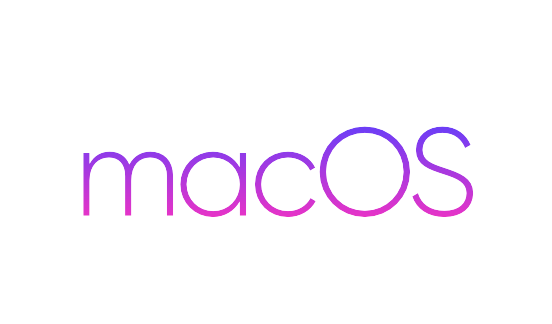The workplace is quickly changing. The number of remote workers is rising significantly, and more devices than ever before are being used by people. The number of individuals working at home in the U.K. has increased to 4 million.
Workers today have high expectations about how technology can make their lives simpler, more comfortable, and more profitable, primarily based on their customer experience. They are demanding solutions that offer higher efficiency, reliability, protection, mobility, and versatility.
Organizations that do not provide employees with current communication, networking, and collaboration tools that are always available are at risk of falling behind their rivals in a variety of main areas: staff efficiency, customer loyalty and the ability to attract and retain the best employees, regardless of location.
What is Endpoint Security?
Endpoint security is the practice of preventing malicious actors and campaigns from targeting endpoints or entry points of end-user devices like desktops, laptops, and mobile devices. Endpoint security solutions guard against cybersecurity threats to these endpoints on a network or in the cloud. From traditional antivirus software, endpoint security has developed to provide robust protection from advanced malware and emerging zero-day threats.
Nation-states, hacktivists, organized crime, and malicious and accidental insider attacks are at risk to organizations of all sizes. Endpoint security is also seen as the frontline in cybersecurity, which is one of the first places businesses look to protect their enterprise networks.
As cybersecurity threats have increasingly increased in volume and complexity, the need for more sophisticated endpoint security solutions is also increasing. The endpoint security systems of today are designed to detect, evaluate, block, and contain attacks that are in progress quickly. To do this they need to collaborate with each other and with other security technologies to provide visibility to administrators about advanced threats to speed response times for detection and remediation.
Why is Endpoint Security Important?
There is a very dynamic typical workplace; businesses are gradually integrating activities that promote data access, such as bring-your-own-device policies or remote access.
Although for a modern, optimized workforce, these steps are important, they can lead to possible security threats that can take down the entire system.
The addition of personal mobile phones and tablets combined with access to unsafe public and home Wi-Fi networks means that more risks than ever are vulnerable to a traditional enterprise network security perimeter.
Nevertheless, research into endpoint security shows that the business world has not yet implemented strategies to tackle this problem effectively. A research on the subject titled The Cost of Unstable Endpoints was carried out by the Ponemon Institute, which revealed:
• Despite this, inspections have shown that up to 55% of companies are vulnerable to a data breach that could result in confidential information being lost.
• Just 48% of all the organizations surveyed were unhappy or frustrated with their security measures in place at the endpoint.
• Ineffective endpoint security costs businesses an average of more than $6 million a year in breach detection, response, and loss of time.
Another study showed that over the course of 2017, cyber-attacks increased by 328 percent, i.e. the average computer faced more than three attacks every month. This could equate to several attacks every day across hundreds of endpoints when viewed from an organizational perspective.
How Endpoint Protection Can Help Safeguard IT in the Workplace?
1. Process monitoring and termination
Social engineering attacks such as phishing continue to be used by hackers to trick users into downloading and installing malicious scripts on their computers that are intended to steal data, interrupt operations, or kill data across the network.
If their computers are already infected, users may not be aware, because many of this malware is built to run in the background silently.
System administrators can review active processes and quickly terminate questionable ones by allowing remote access to endpoints.
2. Precise details and real-time action
System administrators must also be able to quickly determine what steps to take should threats occur. In order to determine which endpoints are impacted, endpoint management systems will reference audit reports.
Administrators will also be able to suggest the best decisions to policymakers by providing the most up-to-date knowledge about the system.
For example, without available patches, critical vulnerabilities can require affected endpoints to be taken offline.
Through audits, administrators, and decision-makers, such as the number of possible workstations impacted and anticipated downtime, will have the details they need to determine the effect on the business end. They could focus on contingencies by understanding these.
3. Audits for Devices
IT teams should know exactly what hardware and software make up their infrastructure.
IT teams will automatically discover all devices connected to the network, their configurations, and the systems and applications running on them using endpoint management solutions.
This list helps administrators to search and vet these apps and devices to see if they are risk-free. Administrators may then limit and control the use of these technologies in this way.
Over time, audit outcomes may also be gathered. Audit histories may be used to check and verify changes to the network, including possible system malfunction and theft.
4. Deployment of Automated Patch
Fortunately, developers regularly issue patches to correct their goods and services’ glitches and flaws. To know if there are new updates that need to be downloaded and installed, administrators have to carefully keep track of protection and update bulletins beforehand.
Today, for each computer connected to the network, endpoint management systems will automatically identify available firmware and software updates.
Such patches, like Internet-of-Things devices, can also be automatically distributed through devices. Also, during off-hours, updates can be carried out as soon as patches become available, minimizing the workload of the IT team and the downtime caused by patching.
What does Teceze Offer?
Quality, reliable, and cost-effective solutions are the solutions of Teceze Endpoint Security. Save your time and money on most modern mobile device operating systems (OS), such as Android, iOS, while protecting your endpoints from a broad range of IT security threats, including malware, bugs, spam, security risks, and malicious mobile attacks. Contact us to learn what makes Teceze easy to manage a complete endpoint through one console security solutions and services.
Endpoint security is the practice of preventing malicious actors and campaigns from targeting endpoints or entry points of end-user devices like desktops, laptops, mobile.











